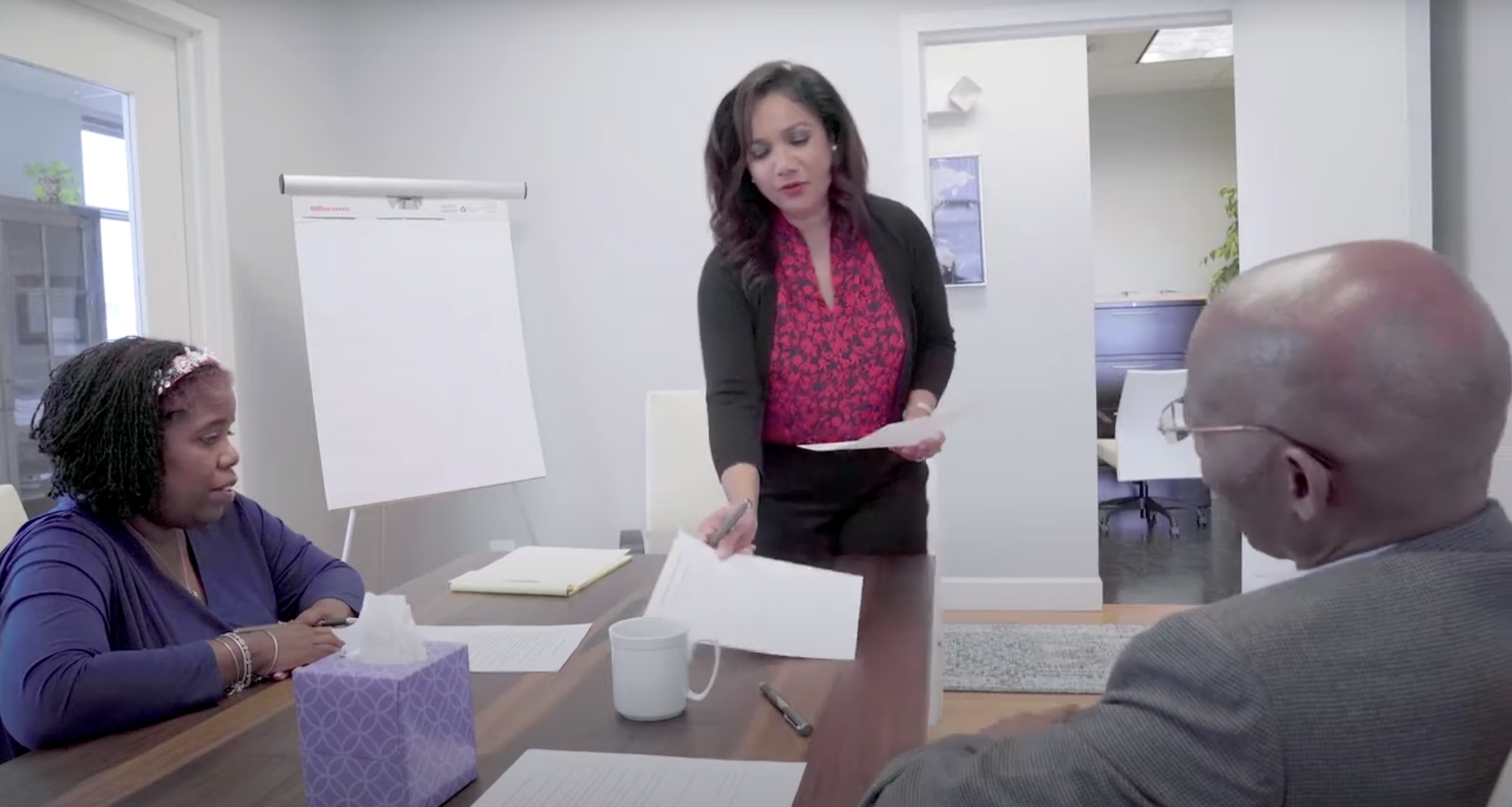
Mediation
There’s a Better Way to Resolve Conflict
Mediation
Mediation is a private process in which a mediator helps the parties discuss and resolve their dispute.
The parties have the opportunity to describe the issues; discuss their interest goals and needs; provide each other with information; and explore ideas for the resolution of their dispute. Courts often refer family law cases to mediation; however, the mediation process is voluntary
Loudoun County, VA mediation attorney Li-Shann Durst focuses on resolving family law issues using alternative dispute resolution methods such as mediation, which she believes are more responsive to the needs of a family going through divorce rather than litigation. Mediation provides an opportunity for parties to better communicate with one another, to gain understanding and to make informed decisions. Many types of common disputes simply do not raise a legal claim that can be taken to court. Disputes between family members, employees, or neighbors are sometimes of this type. Fortunately, mediation is available even when courts are not.
What Kinds Of Family Law Cases Are Mediated?
Any type of family law case may be mediated such as disagreement over custody, parenting time, child support, spousal support, allocation of debt, or the distribution of assets. The parties may call on a mediator to help them resolve these issues. Mediation is available whether or not the parents of minor children were married, and it is available to resolve disputes with grandparents. The courts encourage mediation of disputes in family law cases, because the court process is often lengthy and more often than not, someone loses. Mediation is not normally used in situations involving domestic violence or family abuse.
What's Involved In The Mediation Process?
Mediations begin with the parties signing a Mediation Agreement. The Mediator will explain the process, lay out the ground rules for the mediation, and explain the mediator’s role. The mediator does not make decisions for the parties, but helps the parties find resolutions that are mutually acceptable.
Each session usually begins with an agenda and parties often need to prepare for the mediation by collecting the necessary paperwork. When the parties reach an agreement, the attorney mediator will memorialize their resolutions in an agreement.
What Happens At The End Of Family Law Mediation?
An attorney mediator will reflect the terms of the parties' agreement in a property settlement agreement or marital settlement agreement.
If questions are raised during a legal review, the parties can agree to return to mediation to discuss the issues and finalize the agreement, if necessary.
The parties can waive a legal review and agree to a binding contract in the mediation. This agreement may be used to settle pending court cases.
Why Mediation Works for Divorcing Families
Private and Confidential: Unlike court proceedings, mediation is a confidential process where sensitive family matters are discussed in a protected, non-public setting.
Empowers Both Parties: Mediation allows spouses to make their own decisions about parenting, property, and support—rather than having a judge decide for them.
Cost-Effective and Efficient: Mediation is often less expensive and quicker than traditional litigation, helping families reach resolution without prolonged court battles.
Encourages Respectful Communication: With the help of a neutral mediator, spouses can focus on solutions, reduce conflict, and build a foundation for healthier co-parenting.
Mediation is effective when both parties are able to speak openly, disclose financial details honestly, and are relatively equal in bargaining power.
Benefits of an Attorney-Mediator in Divorce Cases
Legal Insight Without Advocacy: An attorney-mediator understands the law and can explain how Virginia courts typically handle issues like support, custody, and property division—without taking sides.
Efficient and Informed Guidance: Attorney-mediators can help couples reach realistic, legally sound agreements more quickly by flagging potential legal issues during the negotiation process.
Reduces Risk of Unenforceable Agreements: An attorney-mediator can draft comprehensive, court-ready settlement agreements that are more likely to be approved and enforced.
Streamlined Process for Uncontested Divorce: Attorney-mediators can guide couples from mediation through drafting, notarizing, and even filing final divorce paperwork—saving time and legal fees.
To find out more about Divorce Mediation in Loudoun County, VA and to speak with a mediation attorney, call the law firm of Li-Shann Durst in Ashburn, VA at (703) 443-4762 or Schedule a Consultation.


